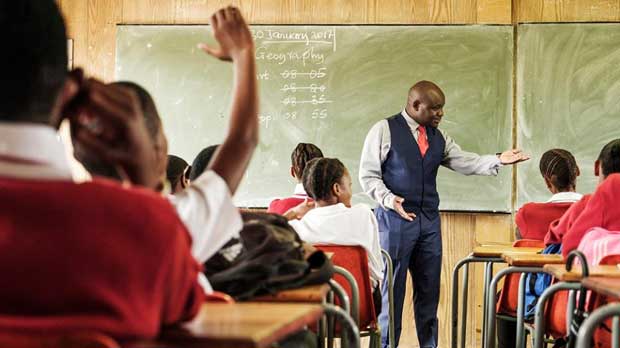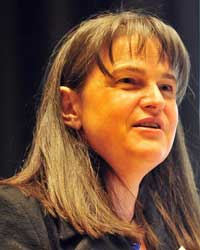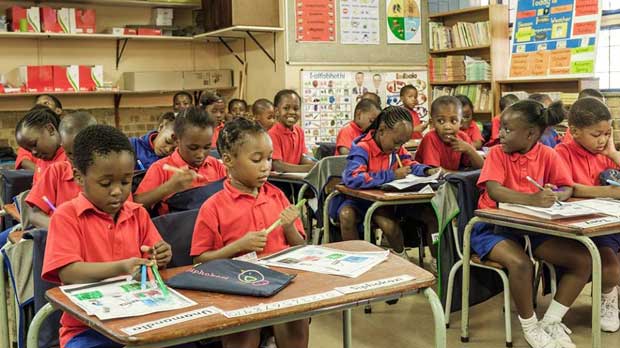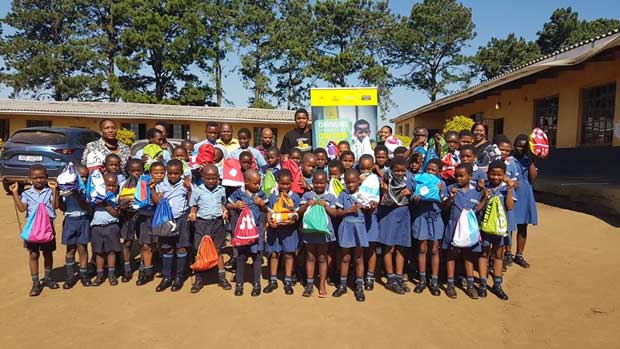
By Alexandra Fradelizio | m/Oppenheim Media Writer
South Africa is one of the most divided and unequal countries in the world. For the nearly 56 million people who inhabit the country, South Africa’s history of apartheid represents racial and social disparities that continue to impact communities, especially with regard to the quality of education available to young people.

Through partnerships between school principals and business leaders, the organization Symphonia for South Africa works to strengthen leadership development in and around schools through an initiative called Partners for Possibility.
The purpose of the initiative is to ensure all students have a chance to have a dignified life, regardless of their socioeconomic or racial backgrounds. Founded in 2010 by Dr. Louise van Rhyn, Partners for Possibility helps to address one of the most significant challenges in South Africa’s educational system.
Currently, there are 25,000 government schools in the country. While 5,000 of these are functioning very well , 20,000 are under-performing. The latest PIRLS study showed that 78 percent of grade fours in the country can’t read for meaning in any language.
“Children in well-resourced schools are able to read and those in poor schools can’t. Because of the inequities in education, inequality is increasing,” said Dr van Rhyn, who also serves as the Chief Executive Officer for Partners for Possibility.
In order to reduce inequalities between schools, Partners for Possibility is designed to mobilize more support to under-resourced schools by strengthening local leadership capacity and mobilizing active citizenship around these schools. Principals are equipped with the knowledge and skills necessary to ensure that their schools function well so that great education outcomes can be achieved.

Principals are partnered with business leaders who act as thinking partners and who are able to provide practical support to principals who have a very challenging role. Business leaders and principals are supported on this journey by a Learning Process Facilitator who facilitates community of practice meetings for 8-10 partnerships. They also attend three training courses and receive coaching as part of the process.
The core design principle for the process is for the partnerships to be mutually-beneficial. The partners learn from each other and support each other while working together to lead change at a school. Most principals in South Africa are teachers who were promoted to be principals without being equipped for the task to lead complex organizations. Most business leaders in South Africa have participated in numerous management and leadership development experiences. The Partners for Possibility process enables business leaders to share their privilege with principals while at the same time learning about life in an under-resourced community.
Principals and business leaders work together to mobilize more support to the educators, to ensure that teachers are motivated, and to engage parents as critical partners to educators. Ultimately, the goal of Partners for Possibility is to allow “the school to be the center of the community,” explained Dr. van Rhyn.
So far, 858 principal-business leader partnerships have been established and almost 700,000 students have benefited from this work. Earlier this year, the organization was named as a 2018 World Innovation Summit for Education (WISE) award recipient for the innovative approach to capacity building in education. Archbishop Desmond Tutu has also publicly praised their work when he said: “God looks at South Africa and then He cries. And then He looks at the work of Partners for Possibility and smiles.”

Despite all the successes of the organization, Dr. van Rhyn and her team are very aware of the enormity of the task and they are currently searching for philanthropic funders who care about South Africa and who want to reduce inequality within the country.
As the organization continues to partner principals with business leaders, it is Dr. van Rhyn’s hope that other countries will follow their model for success. She remains committed that Partners for Possibility will “facilitate collaboration across traditional boundaries” and act as a “beacon of hope” for South African students and communities.
Learn more about Partners for Possibility and Donate
